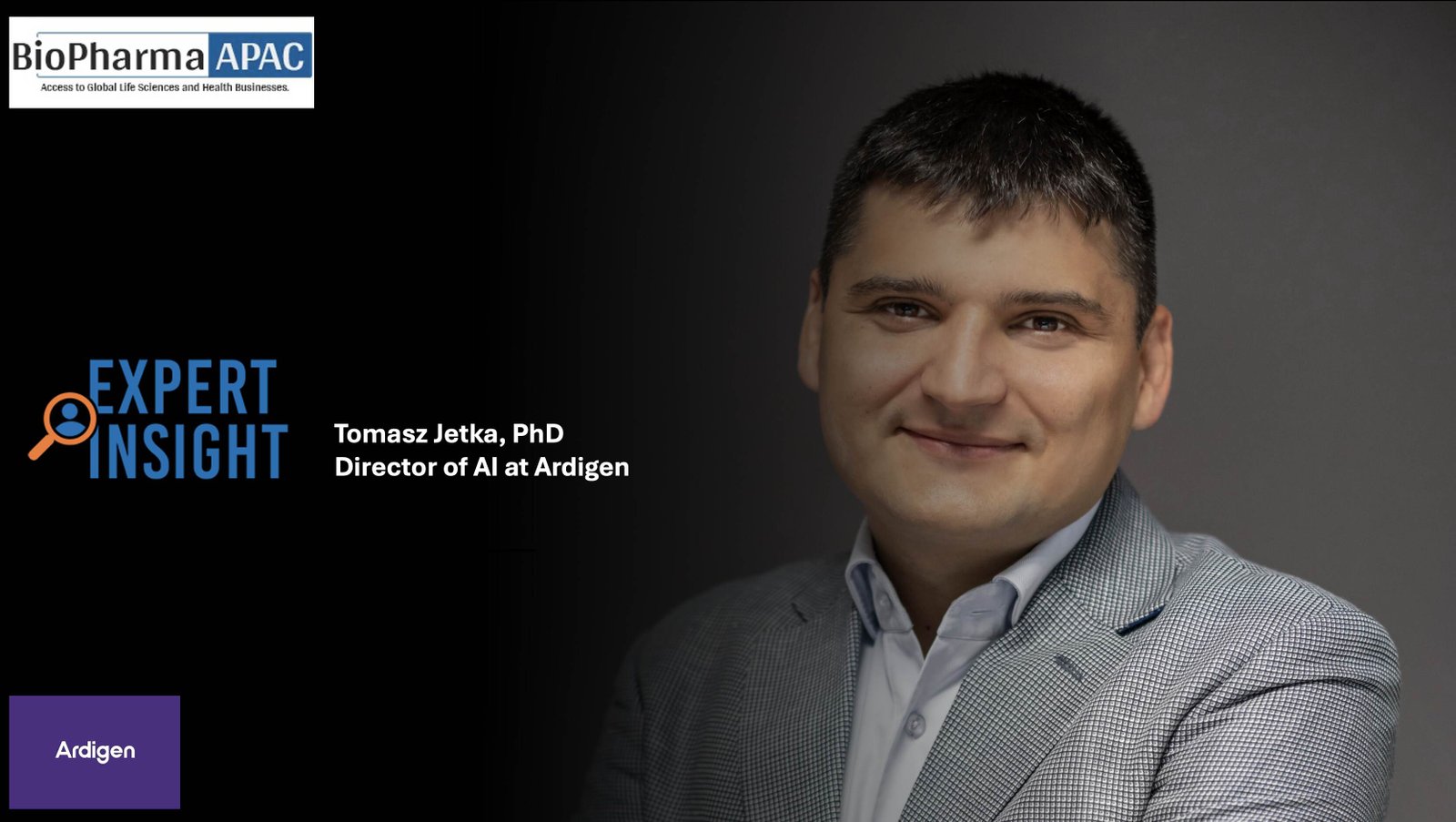Driving Precision Medicine with AI: Tomasz Jetka, PhD, on Ardigen’s Vision for 2025
16 December 2024 | Monday | Interview

In an exclusive conversation with BioPharma APAC, Tomasz Jetka, PhD, Director of AI at Ardigen, delves into the company's ambitious plans to revolutionize precision medicine in 2025. By leveraging interpretable AI, Ardigen is advancing spatial omics and multimodal assays to redefine patient stratification and personalized drug development. Dr. Jetka shares insights on how AI is transforming oncology research, integrating multi-omics data, and addressing critical challenges in scalability, ethical compliance, and clinician trust. This interview highlights Ardigen’s innovative strides in making precision medicine a tangible reality for patients worldwide.
How does Ardigen plan to leverage AI to advance precision medicine initiatives in 2025?
Ardigen aims to leverage interpretable and validated AI to transform spatial omics and other multimodal assays into practical clinical tools. By analyzing tissue architecture and cellular composition, these technologies enable precise stratification of patients into the most promising therapeutic groups. This approach aligns with the recognition of spatial biology as a transformative tool, as highlighted by the recent Nature Method of the Year award.
What role does AI play in Ardigen's approach to personalized drug development?
AI enables Ardigen to uncover complex, hidden disease patterns that are imperceptible to human analysis, driving breakthroughs in personalized medicine. For example, we use predictive modeling to identify patient subgroups most likely to respond to specific treatments. Additionally, AI allows us to reposition vast repositories of legacy biomedical knowledge for tailored clinical applications enabling robust insights even for very small clinical cohorts.
Can you share insights into how Ardigen's AI platforms are transforming oncology research?
Ardigen’s AI platforms support biotech and pharma companies to achieve three critical goals in oncology: i) Discovering novel and more effective therapeutic targets through AI-insights extraction; ii) Identifying optimal patient populations, using predictive models to focus on subgroups most likely to benefit from treatment iii) Designing clinical trial criteria that balance predicted treatment outcomes with recruitment feasibility, enhancing trial success rates.
For example, one of our platforms recently identified a drug response biomarker that optimized patient selection for a solid tumour trial.
How is Ardigen addressing challenges in integrating multi-omics data for precision medicine?
Ardigen has successfully integrated multi-omics data for biomarker identification over several years, tackling challenges such as data harmonization and computational complexity with large-scale bioinformatics and machine learning pipelines. Currently, we are focused on combining spatial imaging with omics data to derive tumor-targeted insights. For example, our models are able to align and directly compare disease models from in vitro models and patients to improve validation studies.
What are Ardigen's key priorities for scaling AI-driven precision medicine solutions in 2025?
Ardigen’s primary focus is to ensure the reliable transfer of AI model predictions from retrospective cohorts to individual patients and small sample sizes (n=1), the foundation of precision medicine. To achieve this, we are developing model validation frameworks and fine-tuning large foundational models.
We also prioritize explainability in our models, ensuring clinicians understand and trust the insights provided. For instance, our model for IBD biopsy segmentation and severity assessment underwent significant product development to adjust to doctor’s needs, proving its usability as a productive assistant.
How does Ardigen ensure ethical and regulatory compliance while deploying AI in healthcare?
Ardigen ensures ethical and regulatory compliance through:
-
Data Privacy and Security: Full anonymization of data ensures researchers have no access to sensitive information. We comply with stringent data protection regulations, including GDPR and HIPAA, to safeguard patient privacy.
-
Bias Mitigation: We actively address demographic and ethnic biases in datasets by building fairness mechanisms into our models. This ensures their usability across diverse populations.
Most Read
- How Does GLP-1 Work?
- Innovations In Magnetic Resonance Imaging Introduced By United Imaging
- Management of Relapsed/Refractory Multiple Myeloma
- 2025 Drug Approvals, Decoded: What Every Biopharma Leader Needs to Know
- BioPharma Manufacturing Resilience: Lessons From Capacity Expansion and Supply Chain Resets from 2025
- APAC Biopharma Review 2025: Innovation, Investment, and Influence on the Global Stage
- Top 25 Biotech Innovations Redefining Health And Planet In 2025
- The New AI Gold Rush: Western Pharma’s Billion-Dollar Bet on Chinese Biotech
- Single-Use Systems Are Rewiring Biopharma Manufacturing
- The State of Biotech and Life Science Jobs in Asia Pacific – 2025
- Asia-Pacific Leads the Charge: Latest Global BioSupplier Technologies of 2025
- Invisible Threats, Visible Risks: How the Nitrosamine Crisis Reshaped Asia’s Pharmaceutical Quality Landscape
Bio Jobs
- Sanofi Turns The Page As Belén Garijo Steps In And Paul Hudson Steps Out
- Global Survey Reveals Nearly 40% of Employees Facing Fertility Challenges Consider Leaving Their Jobs
- BioMed X and AbbVie Begin Global Search for Bold Neuroscience Talent To Decode the Biology of Anhedonia
- Thermo Fisher Expands Bengaluru R&D Centre to Advance Antibody Innovation and Strengthen India’s Life Sciences Ecosystem
- Accord Plasma (Intas Group) Acquires Prothya Biosolutions to Expand Global Plasma Capabilities
- ACG Announces $200 Million Investment to Establish First U.S. Capsule Manufacturing Facility in Atlanta
- AstraZeneca Invests $4.5 Billion to Build Advanced Manufacturing Facility in Virginia, Expanding U.S. Medicine Production
News











